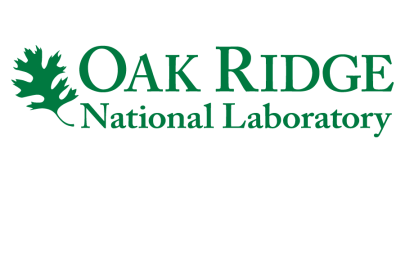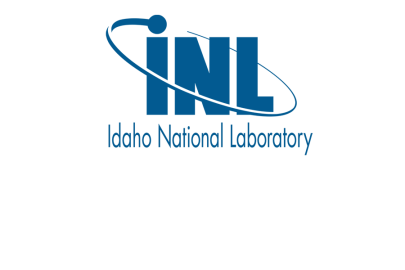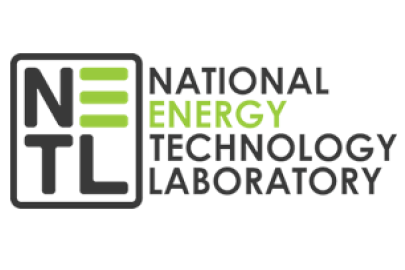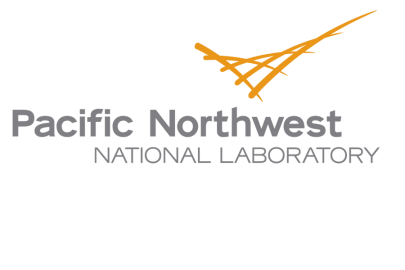The U.S. Department of Energy's (DOE's) Oak Ridge National Laboratory leads the Consortium for Computational Physics and Chemistry (CCPC), which is composed of six national laboratories. CCPC's combined computational science team enables research and development success for other DOE national lab consortia that focus on critical technologies along biomass-to-energy pathways.
Consortia Supported by CCPC
The CCPC computational science team supports research and initiatives for the Feedstock-Conversion Interface Consortium (FCIC), the Chemical Catalysis for Bioenergy Consortium (ChemCatBio), the Bioprocessing Separations Consortium, and the Co-Optimization of Fuels & Engines Initiative.
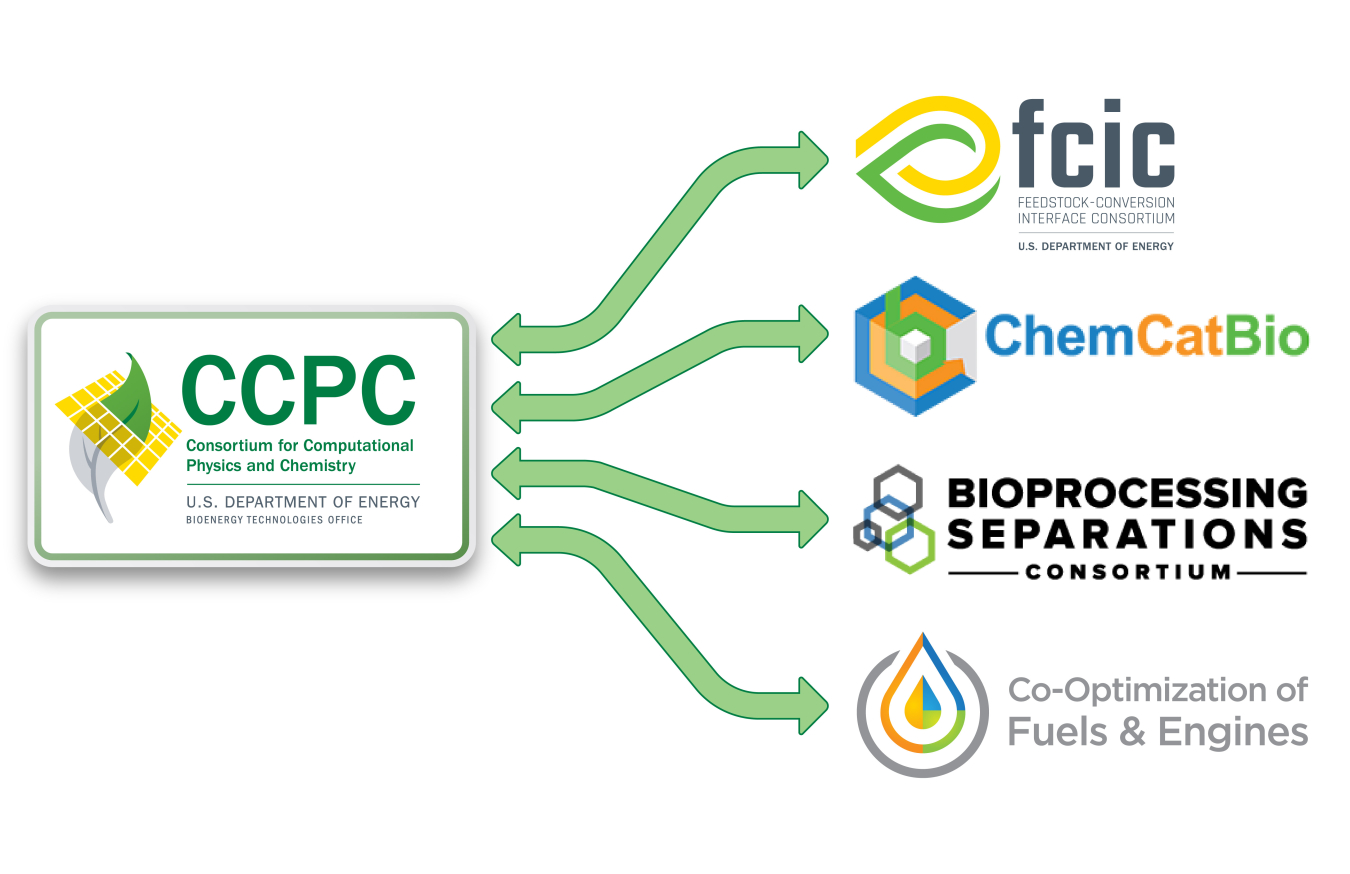
Research at CCPC supports research and development success at other DOE consortia. Image courtesy of CCPC.
Industry and Stakeholder Engagement
Outcomes of the CCPC are directly applicable to stakeholders in the bioenergy industry and associated research community. In order to maintain relevance to industry priorities, the CCPC utilizes an industry advisory board to review modeling activities and provide guidance to develop CCPC modeling outcomes most useful to industry. In addition, the CCPC benefits from guidance provided by the industry advisory boards of the other consortia the CCPC supports.
Technology Transfer with Open-Source Computing Code and Platforms
A critical element of the CCPC’s technology transfer plan is the utilization of open-source computing codes and platforms. CCPC code is provided to the public on GitHub, and the CCPC utilizes the open-source computational fluid dynamics software Multiphase Flow with Interphase eXchanges developed by National Energy Technology Laboratory. By utilizing open-source code and software, CCPC modeling toolsets can be readily accessed by bioenergy industry researchers and the broader bioenergy research community.


